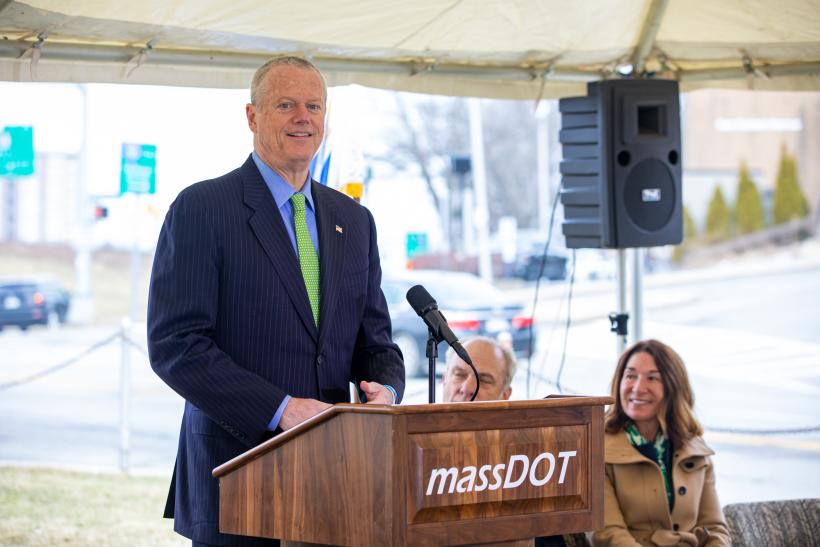Massachusetts – Gov. Charlie Baker and Lt. Gov. Karyn Polito filed a $9.7 billion Massachusetts Transportation Resources and Climate (MassTRAC) bill on March 17 designed to provide state matching funds for the state to compete for federal funds from the Bipartisan Infrastructure Law (BIL).
 The legislation includes $6.2 billion to support core federal formula programs for highway, transit, and environmental projects. The funding authorized under BIL provides the state with an opportunity to increase investments in roads, bridges, and other transportation infrastructure, with a focus on climate change mitigation, resiliency, equity, and safety for all users, particularly cyclists and pedestrians.
The legislation includes $6.2 billion to support core federal formula programs for highway, transit, and environmental projects. The funding authorized under BIL provides the state with an opportunity to increase investments in roads, bridges, and other transportation infrastructure, with a focus on climate change mitigation, resiliency, equity, and safety for all users, particularly cyclists and pedestrians.It includes $3.5 billion in potential state matching resources to support the aggressive pursuit of new and existing federal discretionary and competitive grant programs available under the BIL.
Highlights of the $9.7 billion MassTRAC bill:
- $6.2 billion to support core programs for Highway, Transit, and Energy and Environmental Affairs (EEA).
- $2.8 billion in authorization related to the increased federal formula funding in BIL.
- $2.5 billion for highway federal aid and non-federal aid BIL support.
- $145 million for state match funds required for the increased federal funding for the Massachusetts Bay Transportation Authority (MBTA).
- $200 million to support EEA’s Clean Transportation program.
In addition, the bill would fund:
- $3.3 billion to support Massachusetts Department of Transportation (MassDOT) and MBTA capital programs through 2026.
- $1.79 billion (federal aid and non-federal aid) for MassDOT Aeronautics, Highway, Rail & Transit, and Office of Transportation Planning to support capital program through 2026.
- $150.8 million in new federal aid authorization for MassDOT Highway to utilize the funding provided under the Coronavirus Response and Relief Supplemental Appropriations Act (CRRSAA).
- $85 million authorization to improve the condition of non-interstate pavement on the National Highway System.
- $55 million in additional authorization to support investments in cities and towns to promote bicycle and pedestrian safety, improve municipal transportation asset conditions, and invigorate downtown community public spaces through several grant programs.
- $400 million for the MBTA to continue to invest in the modernization of its infrastructure and vehicles.
- $830 million to support the purchase of a new fleet of MBTA Green Line cars that are more energy efficient.
- $3.55 billion to support pursuit of federal discretionary and competitive grant program funding.
Provisions of this bill would enable the (MassDOT) and the Massachusetts Bay Transportation Authority (MBTA) to use certain project procurement and delivery tools that could speed the implementation of BIL funded projects, as well as regular project delivery.
